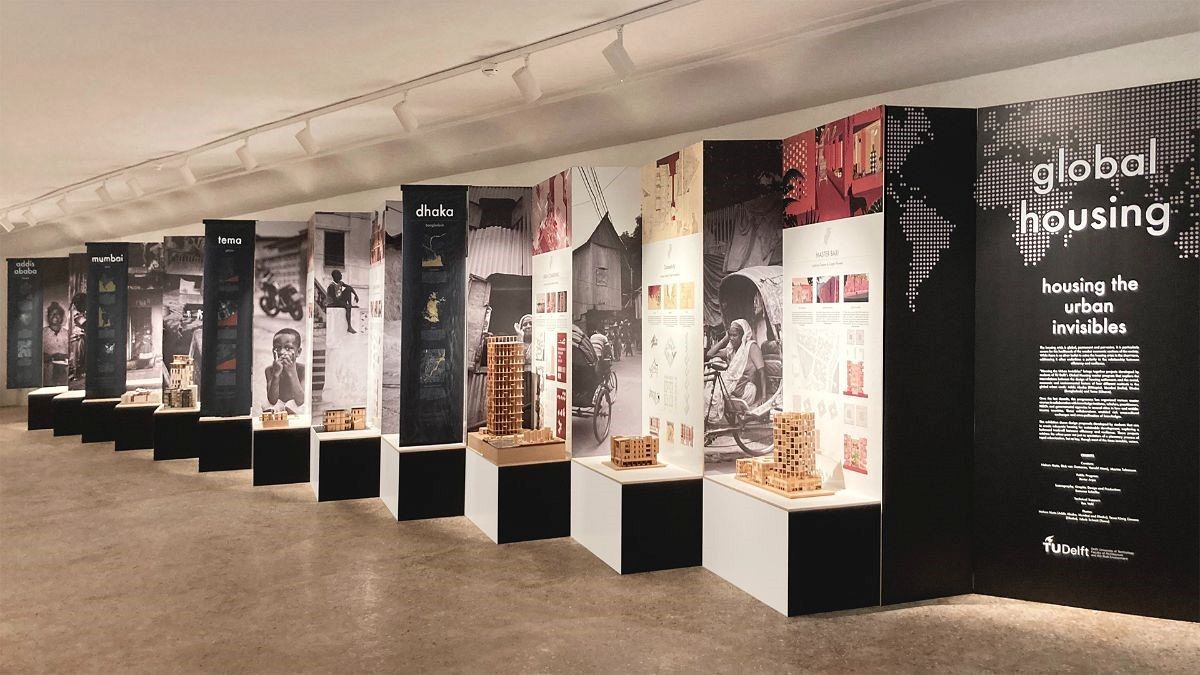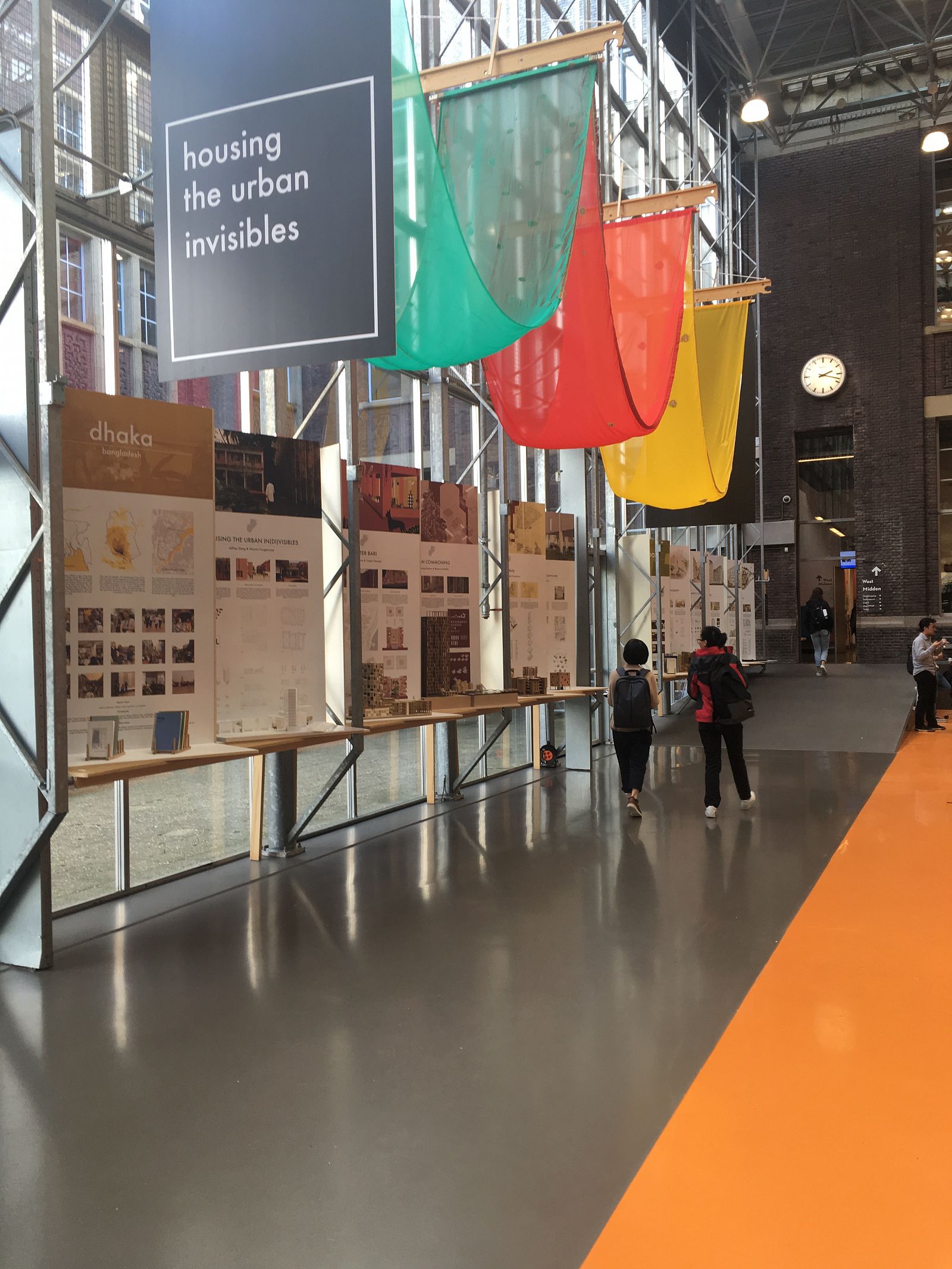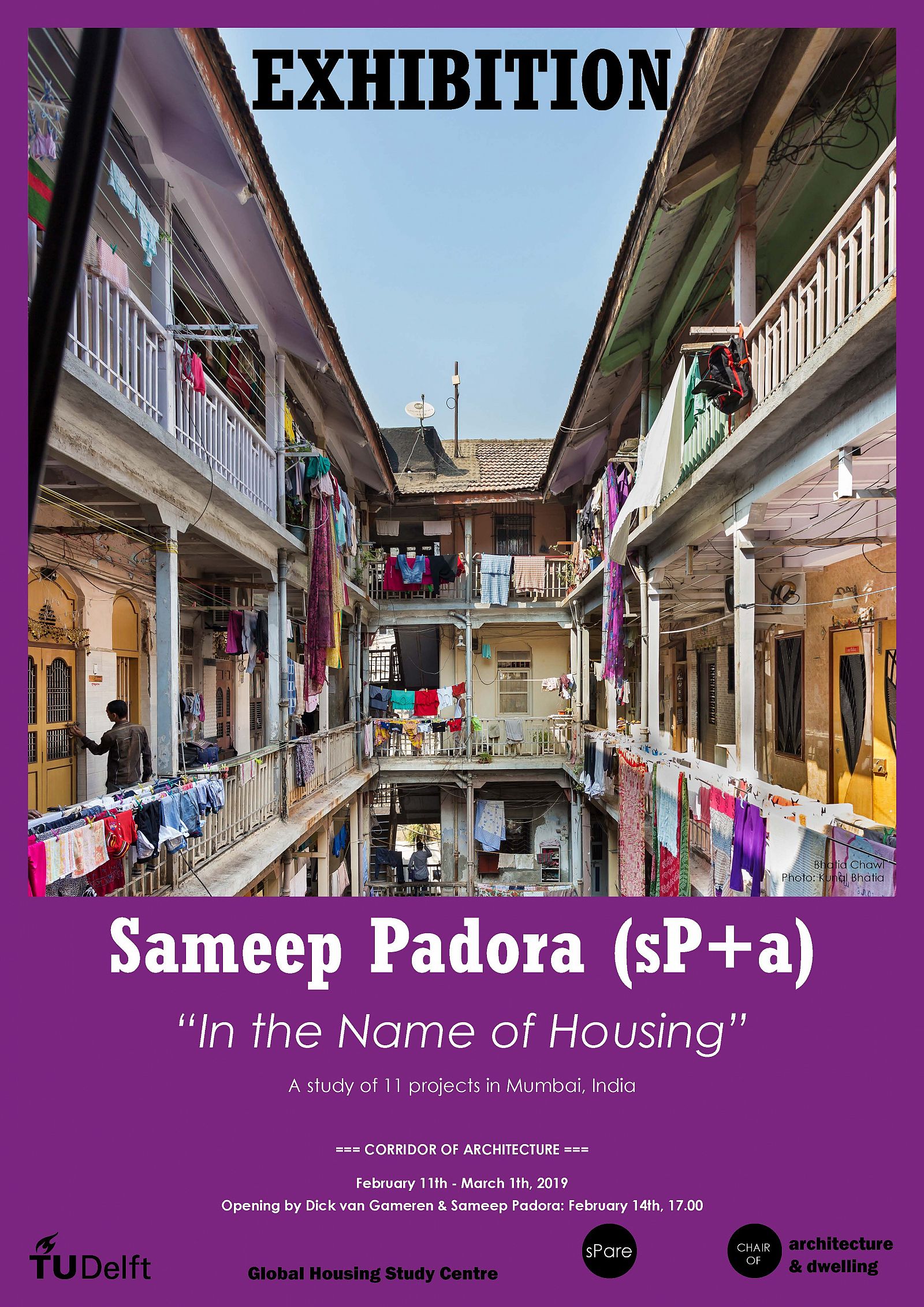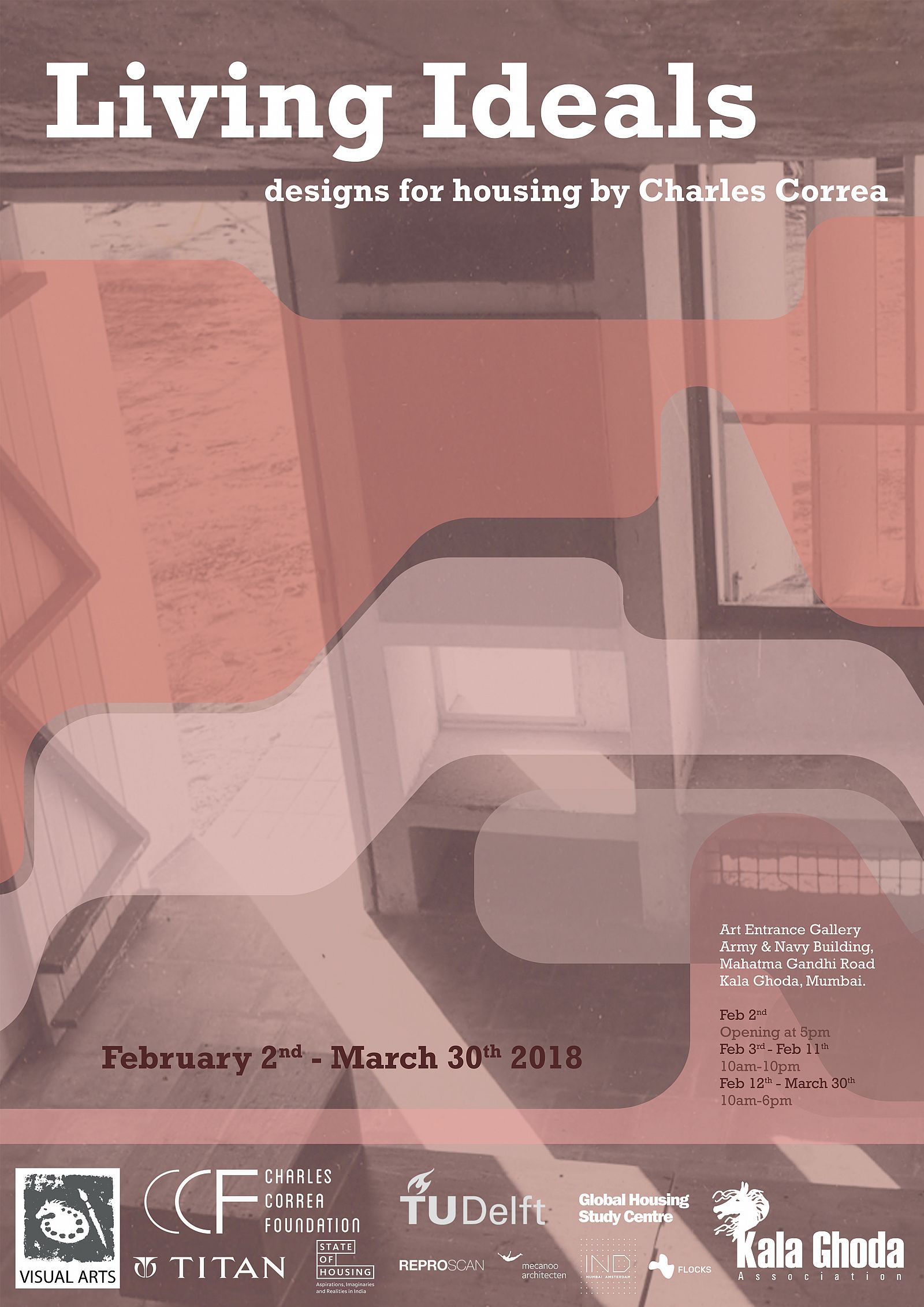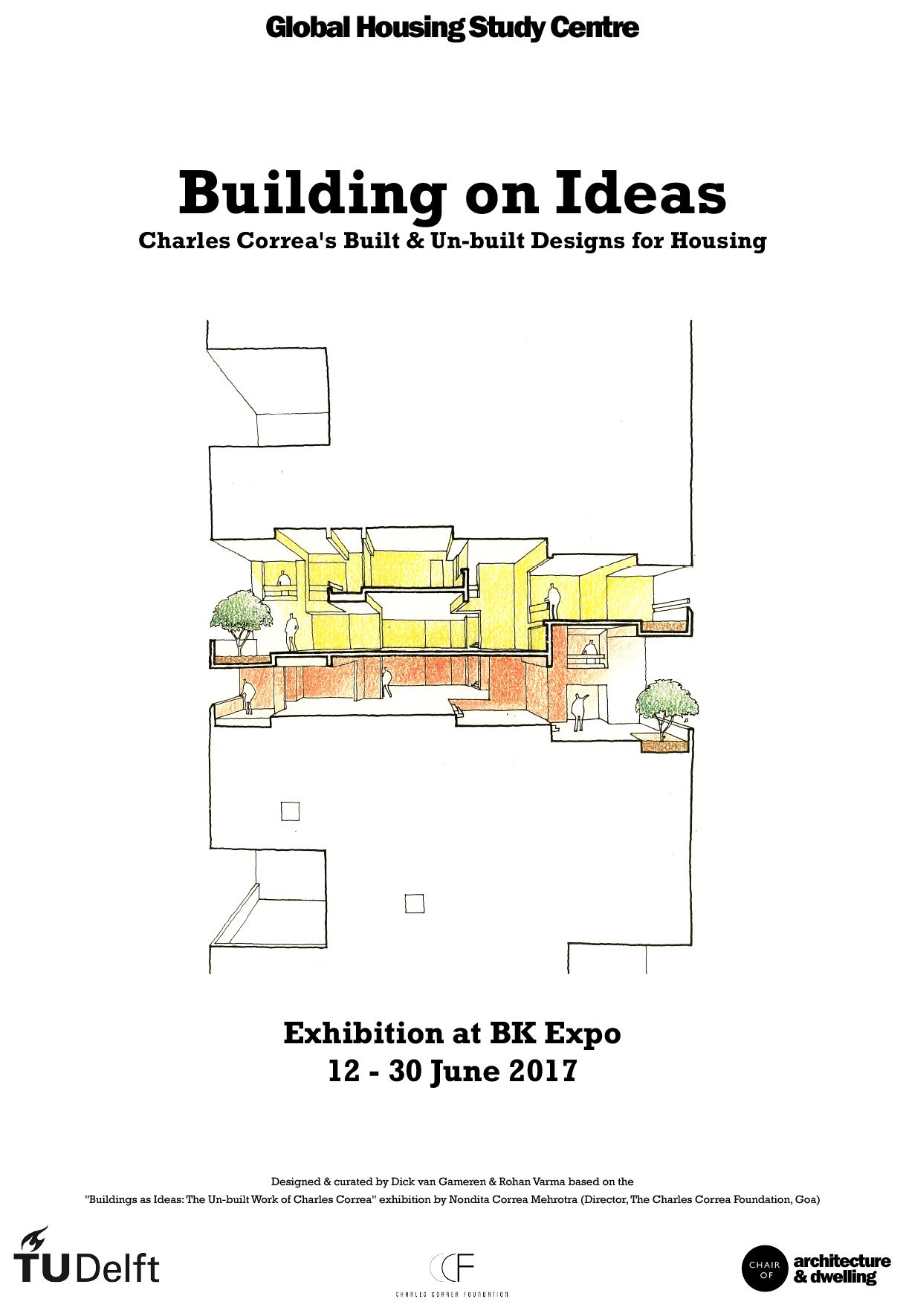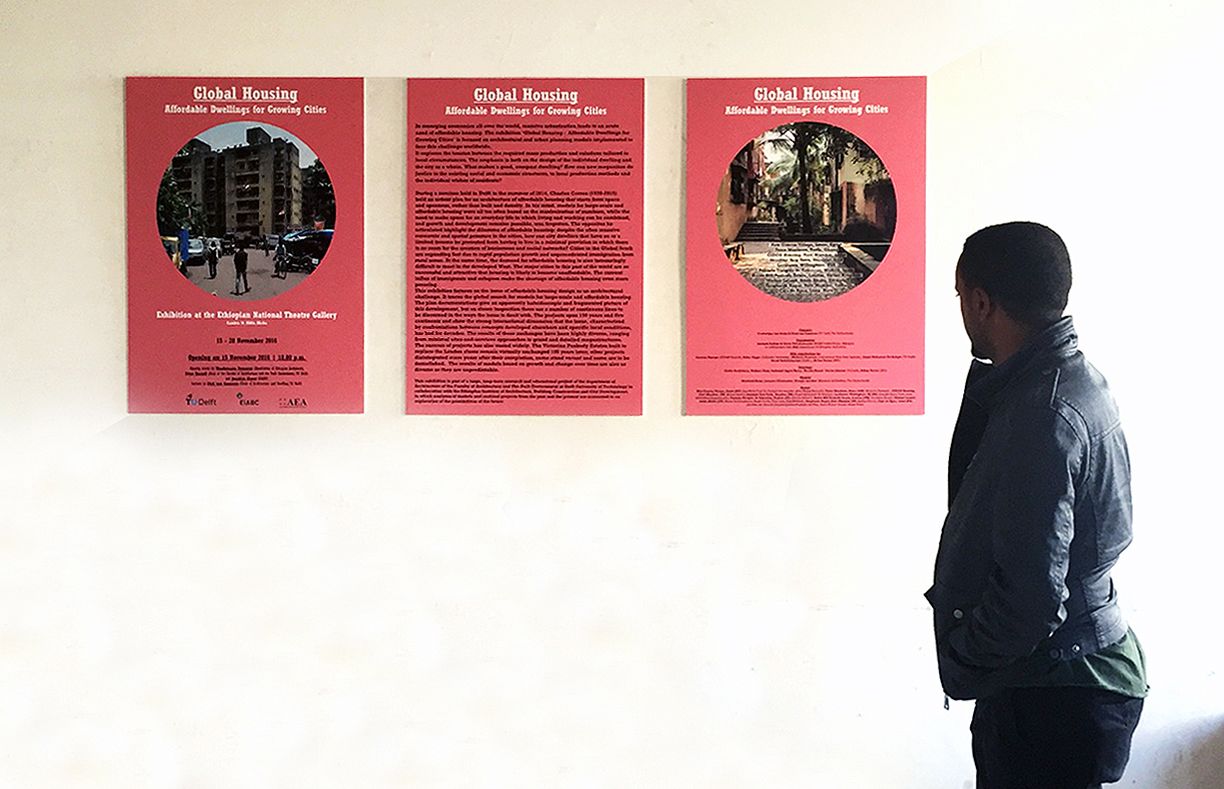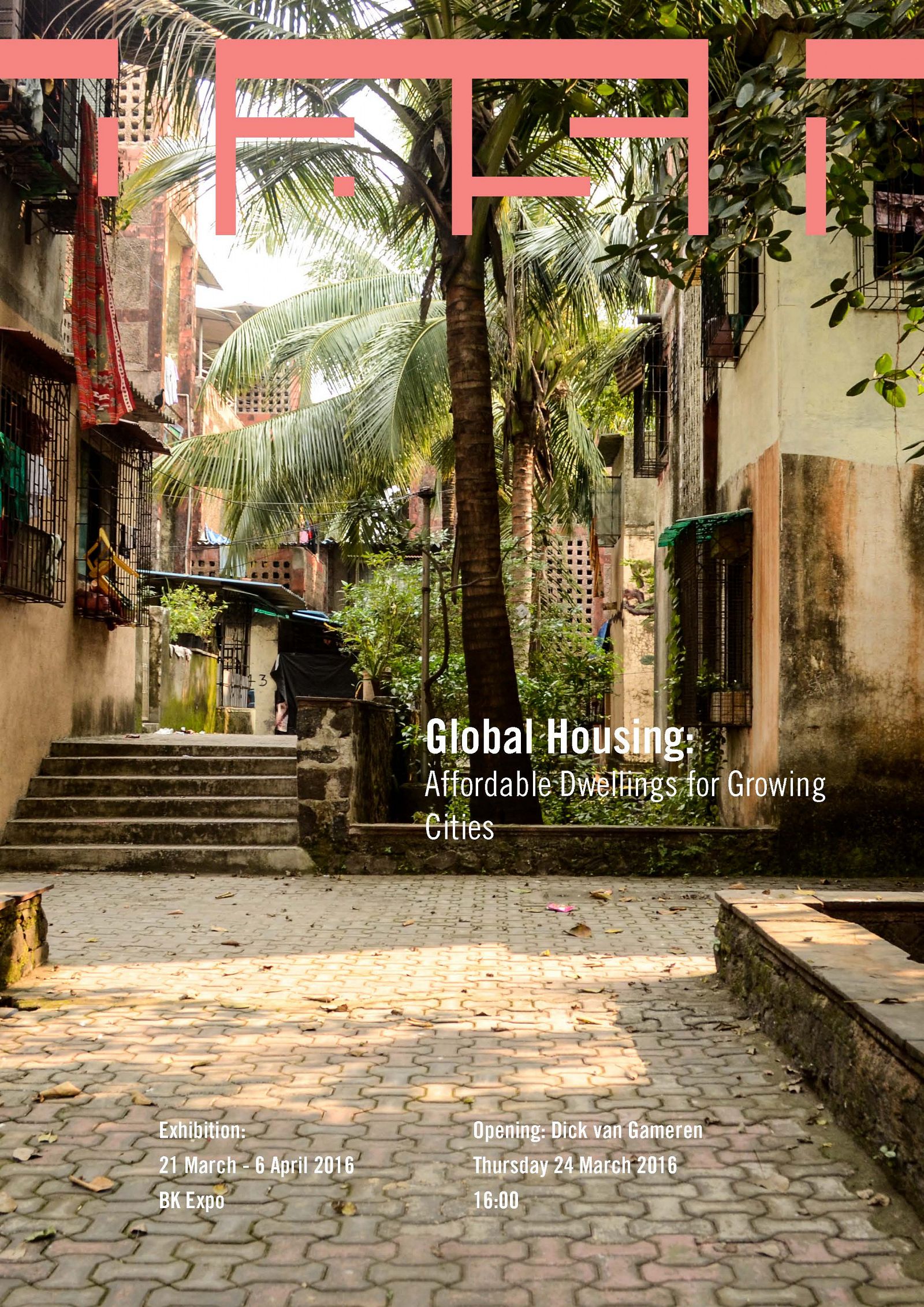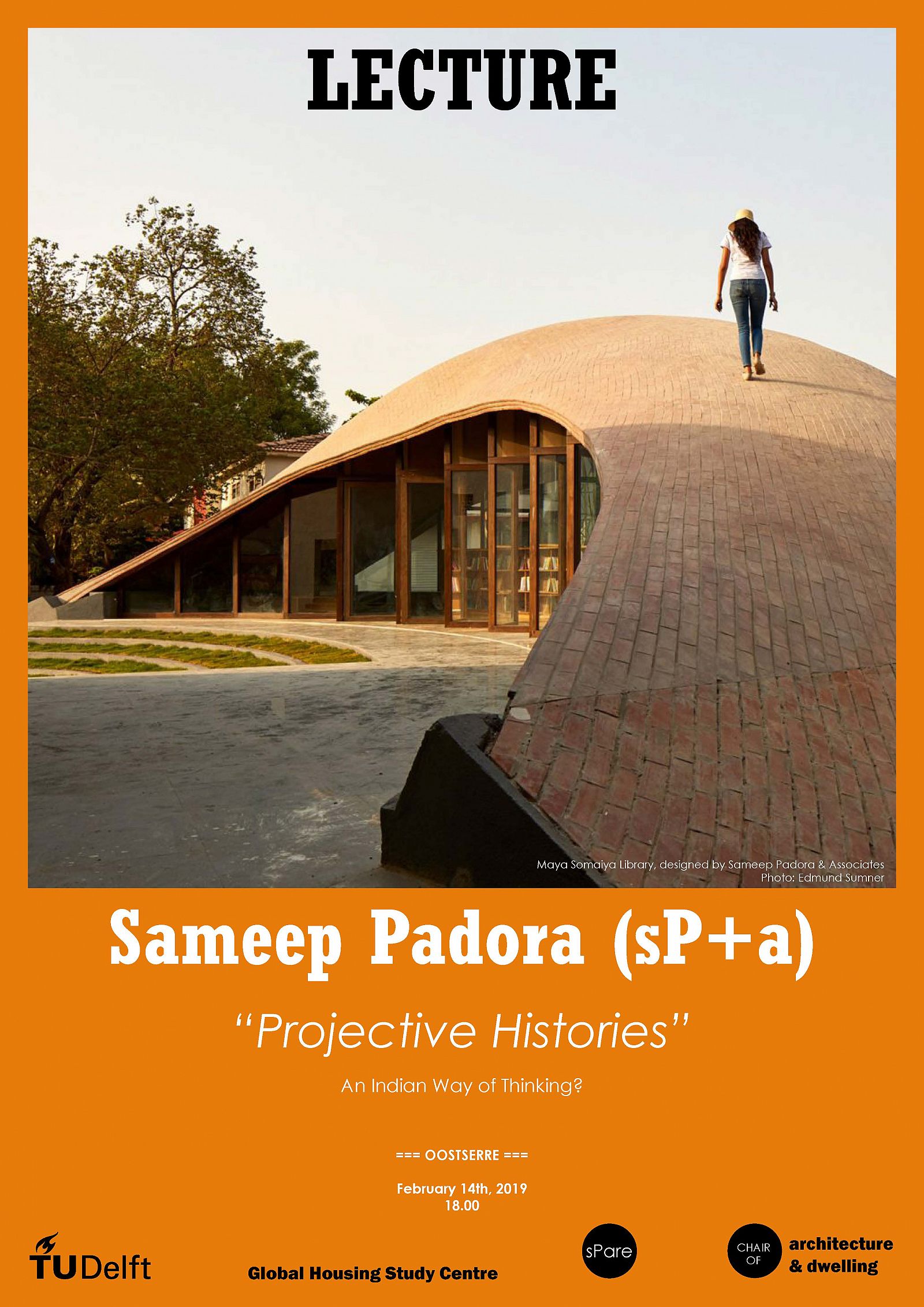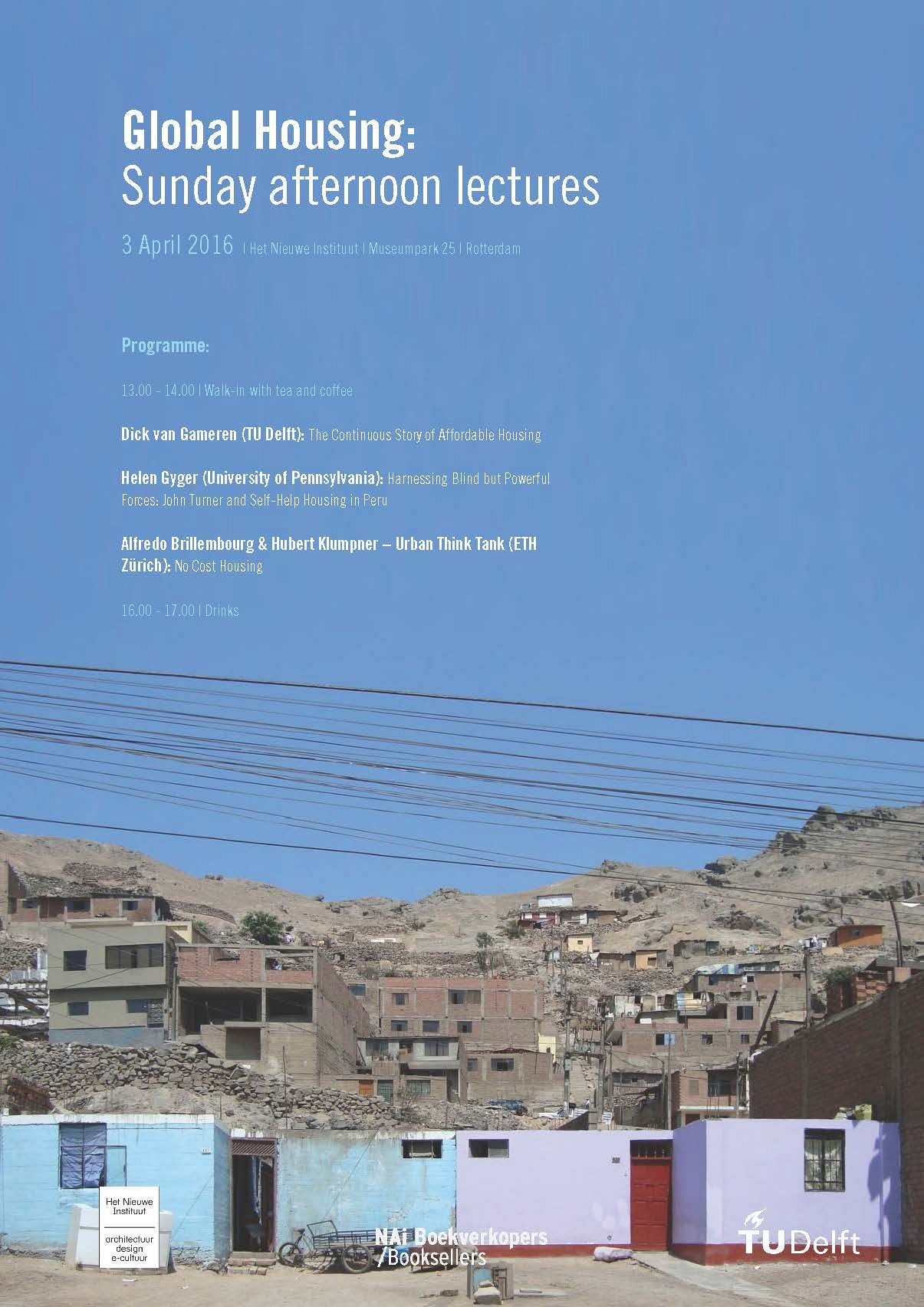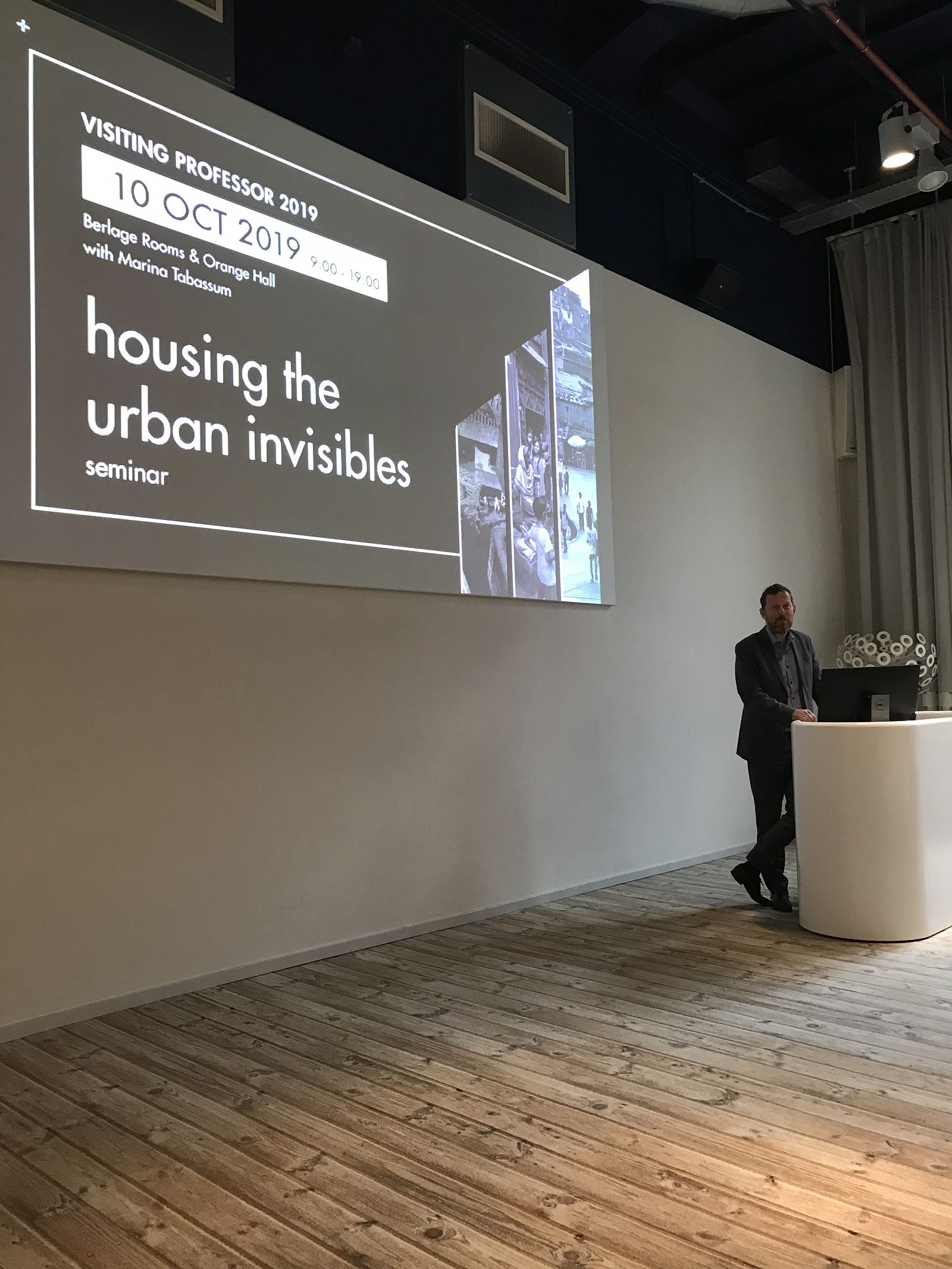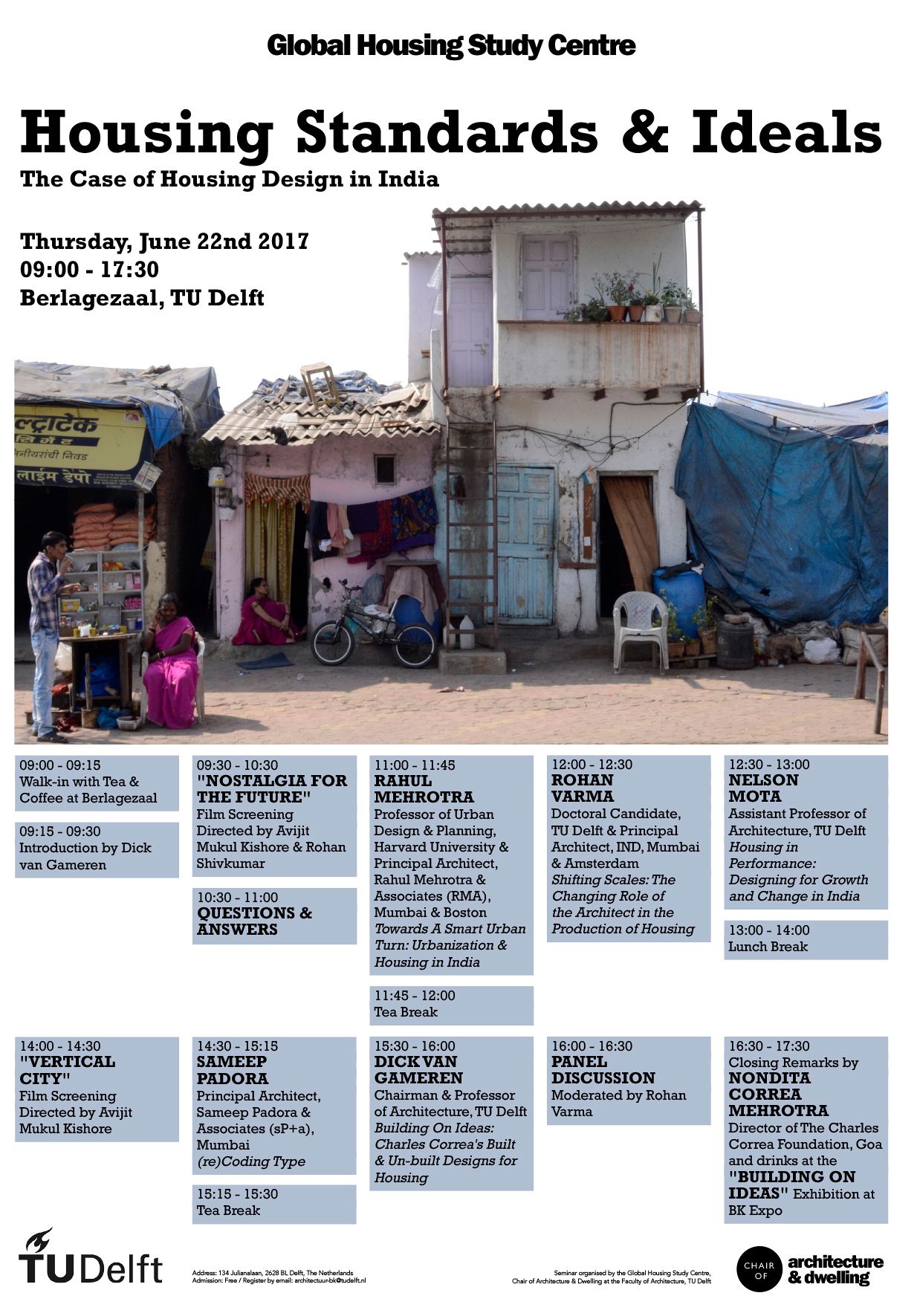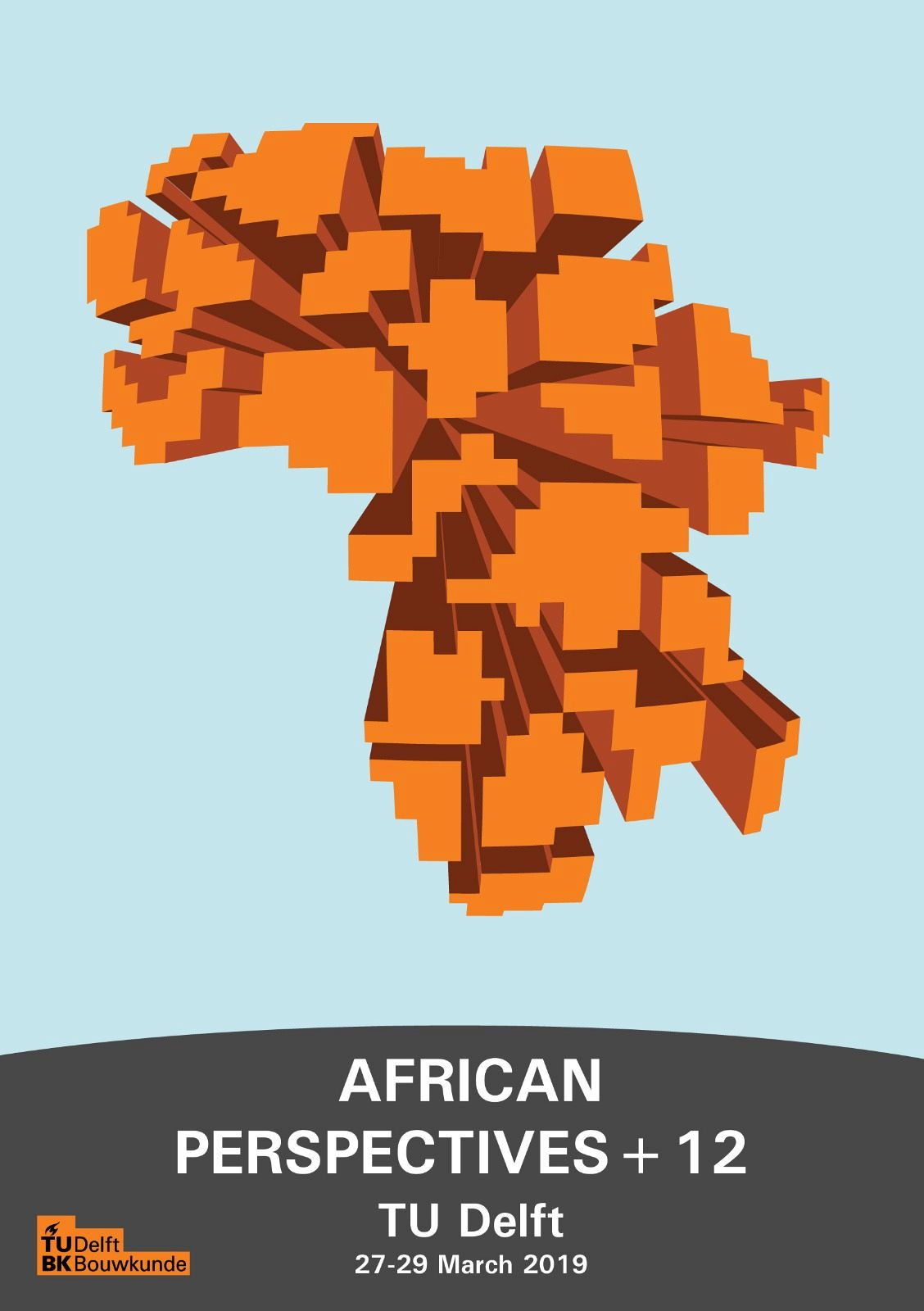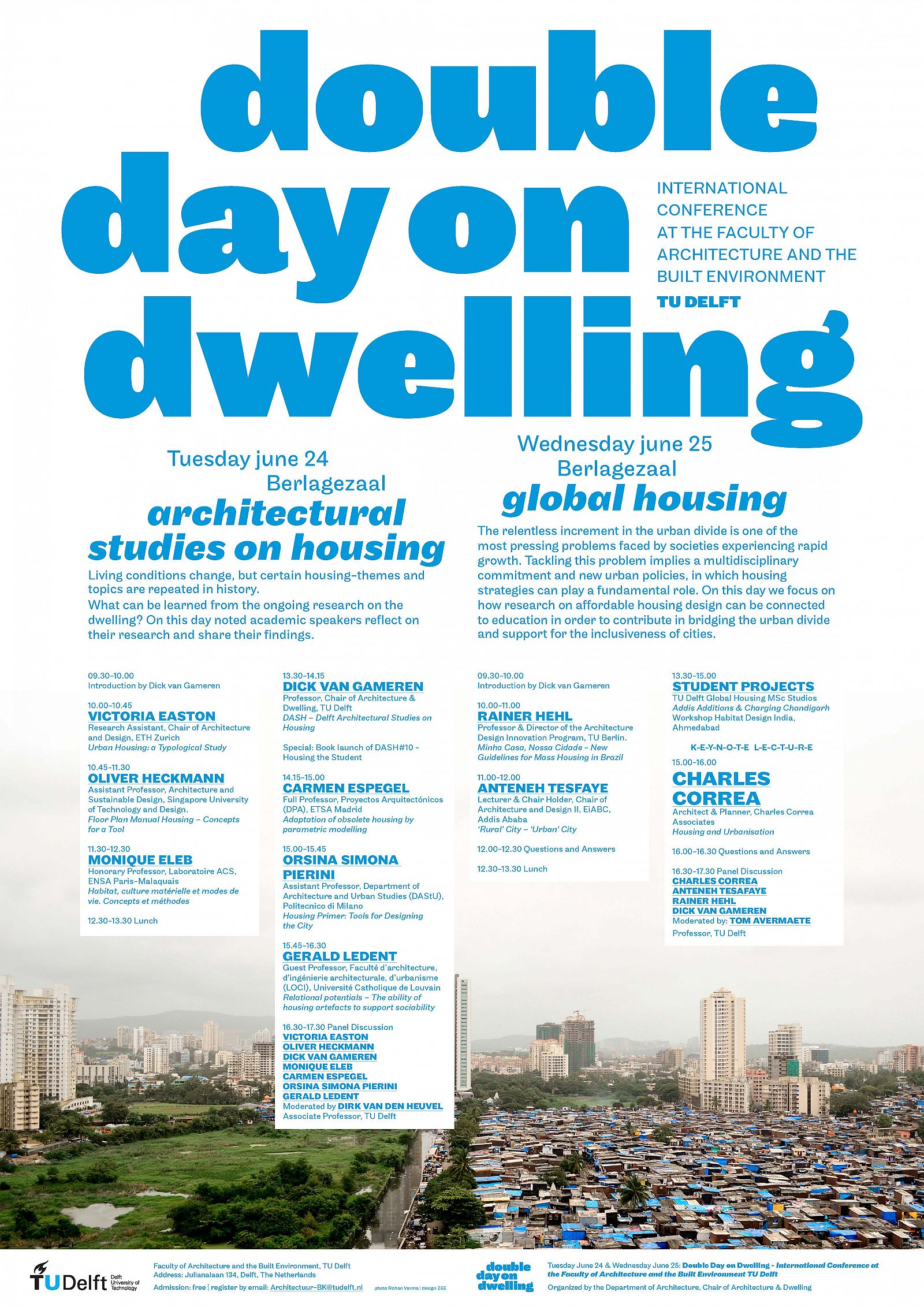- Events
- Exhibitions
- Lectures
- Seminars
- Conferences
The BK faculty will be represented at the 17th Venice International Architecture Exhibition with “Housing the Urban Invisibles”. A show that displays student work and educational material that critically explores alternative approaches for the design of mass housing as a key component of sustainable development.
This show addresses the theme of the Biennale, “How Will We Live Together?”, and invites the visitors to re-think the current systems for the production of affordable housing worldwide, with a particular focus on contexts undergoing a process of rapid urban growth.
“Housing the Urban Invisibles” draws upon the results of the Dhaka studio co-organised by Prof. Marina Tabassum during her Visiting Professorship at the faculty in the Spring of 2019, expanded with photos and student work developed under the auspices of the Global Housing educational programme for Tema (Ghana), Mumbai (India) and Addis Ababa (Ethiopia). The students work from the Global Housing studios is complemented with a display of educational material developed for the edX MOOC “Global Housing Design”, developed by the Global Housing research group.
The exhibition “Housing the Urban Invisibles” brings together the work of the students that participated in the Global Housing studios of the Faculty of Architecture of Delft University of Technology (group of Architecture & Dwelling) during the academic year 2018/19.
This exhibition is organised under the auspices of the visiting professorship of Marina Tabassum and included housing projects for Mumbai (India), Dhaka (Bangladesh) and Tema (Ghana).
The need for affordable housing in the city of Mumbai is beyond question. Most writing and discussion in the public realm on the subject has focused on the “how” of affordable housing, examining models of subsidy, tenure, and equitable allocation. The focus of this study however, lies in the “what”. “In the name of housing” documents the typological and tectonic configurations of affordable housing in Mumbai, sutured deep within the city’s fabric and history and presents this as an alternative to the apathetic apartment
format of formal affordable housing being built in the city currently. The exhibition attempts to analyse these emergent archetypes using various methods of architectural documentation in an effort to establish a datum from which to project future possibilities.
See also here
Charles Correa (1930-2015) was arguably one of the most important and influential Indian architects to have worked post-Independence. As an architect, planner, activist, and theoretician, he realized an extensive oeuvre, both built and un-built, in drawings and in writings. With this exhibition, we want to pay tribute to Correa’s legacy as a leading and inspiring authority on housing design by highlighting the main concerns and themes that guided his work. The vast range of Correa’s designs for housing is remarkable for the consistency with which he addressed the various complex issues of generating habitat. Through both, his built and un-built work, deceptively simple ideas expressed with great clarity of thought help identify clear lineages between ideas and projects, whether they be for single-family homes or townships, built for the poor or for the rich. Throughout the exhibition, we want to highlight the leading paradigms of Correa’s housing designs and their development over time through the documentation of 20 projects that remain key references for students and architects even today. The projects are documented with the help of original presentation drawings and publications, working drawings as well as contemporary photography. Models made especially for the exhibition give insight into 8 key projects. Correa’s work is shown not as mere individual projects, but as an inspiring and unique example of the power of a continuous process of thinking and drawing, of research by design.
The intention of the exhibition is primarily to pay tribute to Charles Correa’s legacy as one of the most prominent and inspiring authorities on housing design as well as highlight the main concerns and themes that guided his work.
Through drawings, photographs and sketches from the Correa Archives, as well as models produced here at the faculty, the exhibition charted the development of Correa’s ideas on housing, from his seminal Tube House linear model, based on the idea of a climate-responsive architecture, to the complex courtyard clusters of Belapur, focusing on the ideas of creating community and opportunities for growth and change in time.
Through the exhibition, we highlighted these important paradigms and their development over time through a number of projects that still remain key references for students and architects today.
The exhibition Global Housing - Affordable Dwellings for Growing Cities previously featuring at BK Expo in Delft now travels to Addis Ababa, Ethiopia.
With this exhibition, the book series DASH (Delft Architectural Studies on Housing) presented the double issue Global Housing – Affordable Dwellings for Growing Cities.
In emerging economies all over the world, massive urbanization leads to an acute need of affordable housing. DASH Global Housing – Affordable Dwellings for Growing Cities is focused on architectural and urban planning models implemented to face this challenge worldwide. It explores the tension between the required mass production and solutions tailored to local circumstances. The emphasis is both on the design of the individual dwelling and the city as a whole. What makes a good, compact dwelling? How can new megacities do justice to the existing social and economic structures, to local production methods and the individual wishes of residents?
See also here
With this exhibition, the book series DASH (Delft Architectural Studies on Housing) presents the double issue Global Housing – Affordable Dwellings for Growing Cities.
In emerging economies all over the world, massive urbanization leads to an acute need of affordable housing. DASH Global Housing – Affordable Dwellings for Growing Cities is focused on architectural and urban planning models implemented to face this challenge worldwide. It explores the tension between the required mass production and solutions tailored to local circumstances. The emphasis is both on the design of the individual dwelling and the city as a whole. What makes a good, compact dwelling? How can new megacities do justice to the existing social and economic structures, to local production methods and the individual wishes of residents?
The India of the immediate post-independence era was marked by a frantic nation building energy, which was in some sense serviced by the singularity of the modernist project. Since then however India’s varied socio-cultural environments have shown the futility of singularity as a means of engaging with the country’s incredibly diverse contexts. The lecture will attempt to present the work of the studio within the frame of these contexts as conditional imperatives.
On Sunday afternoon April 3 'DASH - Global Housing' will be presented: Dick van Gameren (founding editor of DASH, TU Delft) will lecture on The Continuous Story of Affordable Housing and Helen Gyger (University of Pennsylvania) takes us to Peru with John F.C Turner and Self-Help Housing. Alfredo Brillembourg and Hubert Klumpner (Urban Think Tank, ETH Zürich) go extreme with their lecture called No Cost Housing!
The seminar “Housing the Urban Invisibles” will bring together architects, researchers and alumni of BK that have been working on the topic of housing in different geopolitical contexts (Sub-Saharan Africa, South Asia, and Middle East).
This seminar is organised under the auspices of the visiting professorship of Marina Tabassum and will include paper presentations, screening of documentaries, and lectures. The seminar will conclude with a visit to the exhibition “Housing the Urban Invisibles”, held in the Oostserre (Orange Hall), and a public lecture given in the Orange Hall by Niklaus Graber and Salauddin Ahmed with the title "Bengal Stream: The Vibrant Architecture Scene of Bangladesh.”
The participation in the event is free.
Programme
by Robyne Somé, Gonzalo Zylberman, Federico Ortiz, Ramona Scheffer.
by Yonas Alemayehu Soressa, Afua Wilcox, Rohan Varma
by Nelson Mota, Yael Allweil and Dirk van den HeuvelOostserre
Keynote lecture I: ‘Dhaka’s ‘Micro Urbanists’: A Million Stories’ by Salauddin Ahmed
This lecture presents a new perspective of the everyday life of the 20 million inhabitants of Dhaka, the capital city of Bangladesh. Often invisible but clearly vital, these life-stories spread out across the city. They weave in and out of the ‘fixed’ morphologies, along the railway tracks, between buildings, on the sidewalks, and the flood dams, eked out by fresh migrants, vagrants, poets, and generally by people at the periphery of official planning. The lecture shows new ways of mapping this vagabond landscape – the impromptu commons, interstitial situations, illicit junctions, invisible knots, and unscripted applications. These penetrates and perforate the planned city, the city of codes and by-laws, and builds alternative modes of practice that self-organizes into a ‘collective of the invisible’. The lecture brings about the protagonists of these stories – the micro-urbanists – as those who in their small-scaled gestures and practices produce this dynamic city.
Keynote lecture II: 'Bengal Stream: A Journey to the Vibrant Architecture Scene of Bangladesh’ by Niklaus Graber
Not too many of us are likely to be familiar with current architectural developments in Bangladesh’s tropical delta region. This area, blessed with cultural and scenic riches, has so far barely been present in the global architectural debate. However, this is about to change, due to excellent works emerging from a vibrant architecture movement. The output of this ‘Bengal Stream’ is not just of a high interest in a spatial and architectural sense. It also bears witness to the high societal relevance of architecture as a discipline. Via local action, carefully developed from the country’s specific history and geography, current trends in Bangladesh are taking on global significance.
In this talk, Niklaus Graber not only gives insight into the remarkable works of the contemporary architecture scene of Bangladesh, but also into his research on the subject and into the making of the Bengal Stream exhibition.
India's rapid urbanisation and growth as an emerging economic power presents us with what can certainly be called one of humanity's biggest challenges in the coming 50 years. By the year 2025, India is expected to surpass China as the world’s most populous country. And by the middle of this century, it will be home to more than 1.6 billion people - of which more than 50 percent (about 875 million people) will be living in its urban centers. With a current urban housing shortage of more than 20 million units, how can architects and planners confront these epic issues? And what role can design play in imagining these new urban landscapes? TU Delft's newly initiated Global Housing Study Centre hopes to generate debate and discussion regarding these issues by organizing a day-long seminar at the Faculty of Architecture that will focus on the challenge of designing affordable housing in India. Speakers will include prominent Indian architects such as Rahul Mehrotra (RMA Architects & Harvard University) and Sameep Padora (sP+a), as well as presentations by Dick van Gameren, Nelson Mota and Rohan Varma. In addition to these lectures, the seminar will also include the screening of two films "Nostalgia for the Future" and "Vertical City" that deal with modernity in India, and the idea of the home.
The Faculty of Architecture and the Built Environment of the TU Delft (Bouwkunde) has a vision for strengthening ties with researchers, practitioners, policy-makers and citizens in the African continent. Bouwkunde wishes to have a positive impact on African’s rapid urbanisation in the next decades. Africa is urbanising at record rates and there are many challenges ahead. According to the World Bank, Africa’s urban population stands at 472 million people today, but this number will double over the next 25 years, reaching 1 billion urban dwellers by 2040.
While the main responsibility for the destiny of African cities lies with African citizens, governments and institutions, we believe that universities everywhere have a role to play in helping educate the next generation of architects, planners, urban designers and the construction sector with a global perspective. We wish to reach out to higher education institutes, governments, businesses and citizens to become partners in promoting sustainable, inclusive and fair urbanisation in Africa within the framework of the New Urban Agenda, adopted at Habitat III in Quito 2016.
We believe African problems need African solutions. TU Delft wants to learn from African practitioners, academics and institutions in order to support positive change in the continent, especially in issues of capacity building and implementation of research supporting the New Urban Agenda. The TU Delft is committed to helping build a strong research network with Africa.
In December 2007, Bouwkunde organised the momentous African Perspectives conference. More than 12 years afterwards, we wish to build upon the legacy of that conference, reinvigorate the discussion and attract new voices to the dialogue
In order to prepare for this conference, we organised a PrepCon in partnership with the Ethiopian Institute of Architecture, Building Construction and City Development in Addis-Ababa in January 2018. During this PrepCon, which gathered a number of scholars and practitioners from Africa and elsewhere, our attention was irrevocably drawn to the necessity to understand Africa as the diverse, multi-cultural, immensely rich place that it is, and to the need to work together with African institutions to help support the next generation of architects, planners, and policy makers who will steer sustainable urbanisation in Africa.
We envision this conference as a catalyst for discussion, exchange and connection, with the clear goal of bringing together academia, practitioners, governance bodies, and cultural agents to engage and explore next steps for sustainable urbanization in Africa.
24 June 2014 | Architectural Studies on Housing
Living conditions change, but certain housing-themes and topics are repeated in history. What can be learned from the ongoing research on the dwelling? On this day noted academic speakers reflect on their research and share their findings.
25 June 2014 | Global Housing
The relentless increment in the urban divide is one of the most pressing problems faced by societies experiencing rapid growth. Tackling this problem implies a multidisciplinary commitment and new urban policies, in which housing strategies can play a fundamental role. On this day we focus on how research on affordable housing design can be connected to education in order to contribute in bridging the urban divide and support for the inclusiveness of cities.
